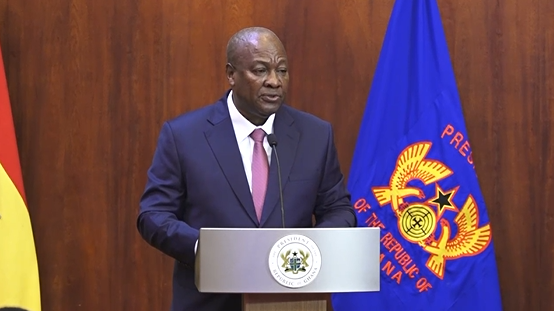The first 30 days of President John Dramani Mahama’s administration have been marked by a structured and strategic approach towards national development under the “Reset Ghana Agenda.”
The above is the contention of governance and leadership expert Dr. Donald Agumenu who has commended the administration’s efforts, pointing out its focus on economic reforms, anti-corruption measures, and infrastructure development.
He passed the judgement in an opinion piece he share with Myjoyonline.com.
According to him, the government has employed a project management approach to ensure a systematic and results-oriented execution of its policies.
He says key activities including robust planning, stakeholder engagement, and risk management strategies have been designed to drive sustainable development.
Management Strategies
- Project Planning: The administration has outlined clear objectives, ensuring resources are effectively allocated to meet the Ghana Project’s goals.
- Stakeholder Engagement: The government has initiated consultations with economic, educational, and constitutional stakeholders to gather diverse perspectives. The establishment of the Office for Reviewing and Auditing Leadership (ORAL) reflects its commitment to transparency and accountability.
- Risk Management: The introduction of performance management agreements and asset declaration forms aims to curb corruption and enhance fiscal responsibility.
Technical Implementation
- Requirements Analysis: The government has prioritised thorough assessments to identify the technical requirements essential for successful policy implementation.
- Infrastructure Development: Initial designs and prototypes indicate a strong commitment to modernizing infrastructure and improving public services.
- Quality Assurance: The administration is implementing rigorous testing protocols to ensure projects meet national standards and deliver long-term benefits.
Capacity Building and Sustainability
- Training Initiatives: The government is enhancing workforce skills to support its ambitious “24-hour economy” initiative.
- Documentation and Transparency: Comprehensive documentation and public reporting on government projects demonstrate a commitment to accountability.
- Long-Term Planning: Strategies for maintaining and sustaining projects over time are being developed to ensure value for money and lasting impact.
Strategic Recommendations
According to him, experts suggest that the government adopt a suitable project life-cycle approach to enhance efficiency. Potential models include:
- Waterfall Model: A structured, linear approach ideal for projects with well-defined goals.
- Evolutionary Spiral Model: A flexible, iterative model allowing for continuous risk assessment and adaptation.
- Incremental Model: A phased approach that enables early delivery of key projects while incorporating stakeholder feedback.
Dr. Agumenu asserts that if the administration maintains its strategic focus on planning, stakeholder collaboration, and transparency, Ghana could experience significant economic transformation.
For him the first 30 days have set a solid foundation, and continued commitment to these principles will be crucial for achieving long-term success.
He said the coming months will be instrumental in determining the effectiveness of the Reset Ghana Agenda, with citizens and experts closely monitoring its progress.
“The administration’s emphasis on governance, economic growth, and anti-corruption efforts has positioned Ghana for a promising future,” he said.


